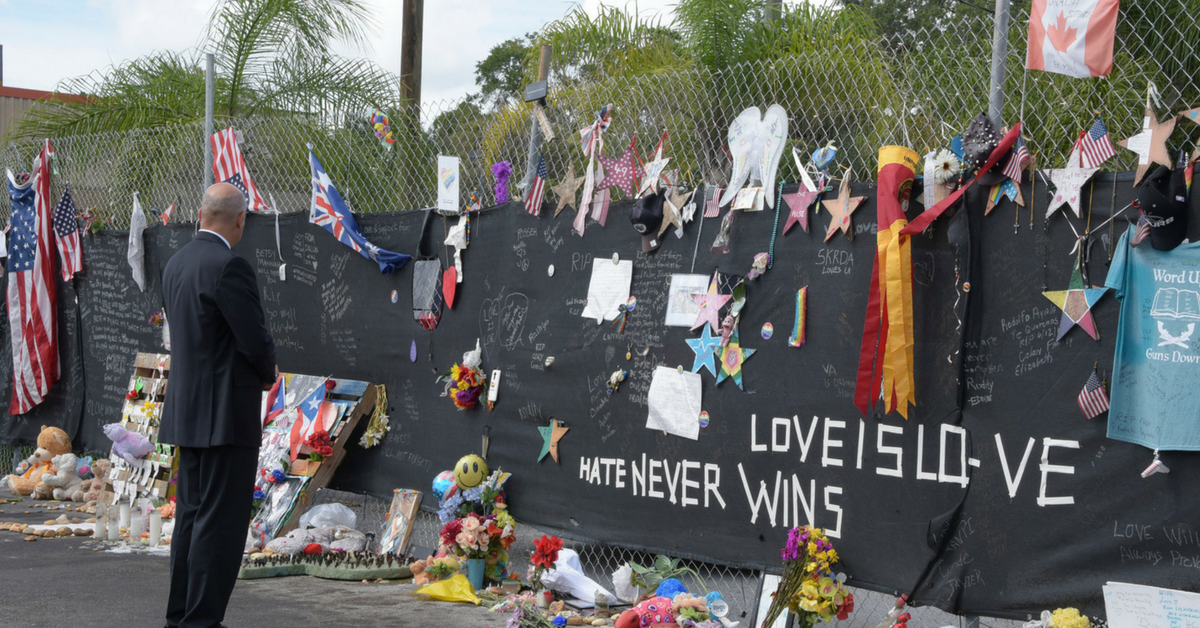Last year was a challenging, and at times unbearable, year for marginalized members of our community. Dec. 12 marked the six-month anniversary of the devastating tragedy at Pulse nightclub in Orlando targeting LGBTQ people of color – a moment that left many shell shocked, traumatized and in a state of uncertainty.
Those feelings resurfaced the morning after the elections. The same people that the Pulse shooting targeted, our Latinx and undocumented families, friends, neighbors and their loved ones, and all those that suffered from the effects of xenophobia, Islamophobia and racism that were promoted on the national stage and spread into our local community, are left wondering what will become of their lives come Jan. 20.
As we prepare for the challenges ahead for the people that mirror those from the Pulse tragedy and their families living with anxiety and insecurity in an America where hate speech and violence have been normalized, we reflect on the lessons we’ve learned from that moment when leaders in philanthropy and the community unified following the Pulse tragedy to thoughtfully support those most deeply and directly impacted on their long journey of healing and empowerment.
The Contigo Fund, an initiative of Our Fund Foundation, was born out of that need and purpose. Because a national coalition of foundations – including the Ford Foundation, the Open Society Foundations, the W.K. Kellogg Foundation, the Arcus Foundation, the Annie E. Casey Foundation, the Robert Wood Johnson Foundation, the Executives’ Alliance to Expand Opportunities for Boys and Men of Color and Our Fund Foundation – stepped forward to be responsive to the communities most directly impacted, an often underserved community has critical resources necessary to support the most marginalized and oppressed as they recover and in anticipation of the challenging days ahead.
Following the tragedy, a team of representatives from foundations, in partnership with members of the local community, teamed up to carefully conduct a philanthropic community needs assessment interviewing local philanthropic and nonprofit leaders and, most importantly, members of the community who were directly and deeply affected by the tragedy.
The assessment provided us perspective on conditions prior to and following the Pulse massacre, recognizing the longstanding institutional inequalities that existed before the shooting, and were terribly exacerbated by the shooting, as well as the significant disparities communities of color in Florida face. Through extensive community feedback, the Contigo Fund was born with a vital purpose and developed principles and goals to guide its efforts.
Guiding Principles:
- We honor the identities and lived experiences of those taken from us. A majority of those affected were of Latinx and African diaspora backgrounds. Some were undocumented. More than half were under 30, with the youngest victim being just 18.
- We recognize the significant disparities faced by our communities shaped by longstanding institutional inequalities. We will work to address these disparities.
- We trust that transformative and lasting change can occur if communities unify. The fund seeks to build bridges across Central Florida’s diverse communities and to raise awareness of homophobia, transphobia, Islamophobia, racism and other forms of bigotry that divide our communities.
Three Main Goals:
- Support the efforts of those that were predominantly impacted by the Pulse tragedy, including advancing the causes of our communities and particularly efforts led by and for by leaders who represent our communities.
- Strengthen Central Florida by building bridges among its diverse and marginalized communities.
- Address the ripple effects of the Pulse tragedy, particularly involving issues of Islamophobia, xenophobia and racism.
To accomplish our goals, we prioritized identifying authentic leadership from the local community that could work with Our Fund Foundation and the community to lay the groundwork to thoughtfully create a community-led participatory grant making model.
In addition, we determined, based on our on-the-ground assessment, that we needed to develop a process for proactive grantmaking to sustain a relatively small number of emerging groups and key organizations while we develop a more robust grant distribution program driven by the local community.
We quickly developed a rapid response fund as an emergency fund supporting emerging leaders, groups, organizations and coalitions. The focus was to help grow and sustain these emerging, nascent efforts that did not exist prior to the tragedy due to the scarcity resources.
We determined that we would identify and recruit a Grant Committee of 12 extraordinary leaders to guide the distribution of the grants and that it would be made up of leaders from the local community and include those most impacted by the tragedy. Seventy-five percent of the members are LGBTQ people of color with representation from the Latinx, Black, transgender, undocumented and immigrant communities. Through their input we established the grant committee’s purpose, goals and structure, and the scope of the request for proposals application and decision-making process for a more robust grant distribution.
Our experience holds various lessons learned and best practices of how national funders can positively show up in Southern communities. We have developed an innovative model that is community-driven, intersectional and focused on long-term impact and on healing a community wounded by a tragedy that includes several unique components:
- A participatory grantmaking model in which members of the communities most impacted by the tragedy drive decisions.
- Rapid response funding that provides flexible support for organizations to facilitate community healing and recovery.
- A capacity-building strategy that works to assure that the response to the tragedy is not only short-term but also fosters a sustainable infrastructure for social change and empowerment of the region’s marginalized communities.
Orlando’s philanthropic efforts are a model on how funders can proactively and thoughtfully respond to a tragedy and work to rebuild and meaningfully transform a fractured community following a crisis by centering those most affected and those most likely to be left out of the conversation and decision-making process.
Marco Antonio Quiroga is the program director at Contigo Fund.














































































































































































































































































































































































































Leave a Reply